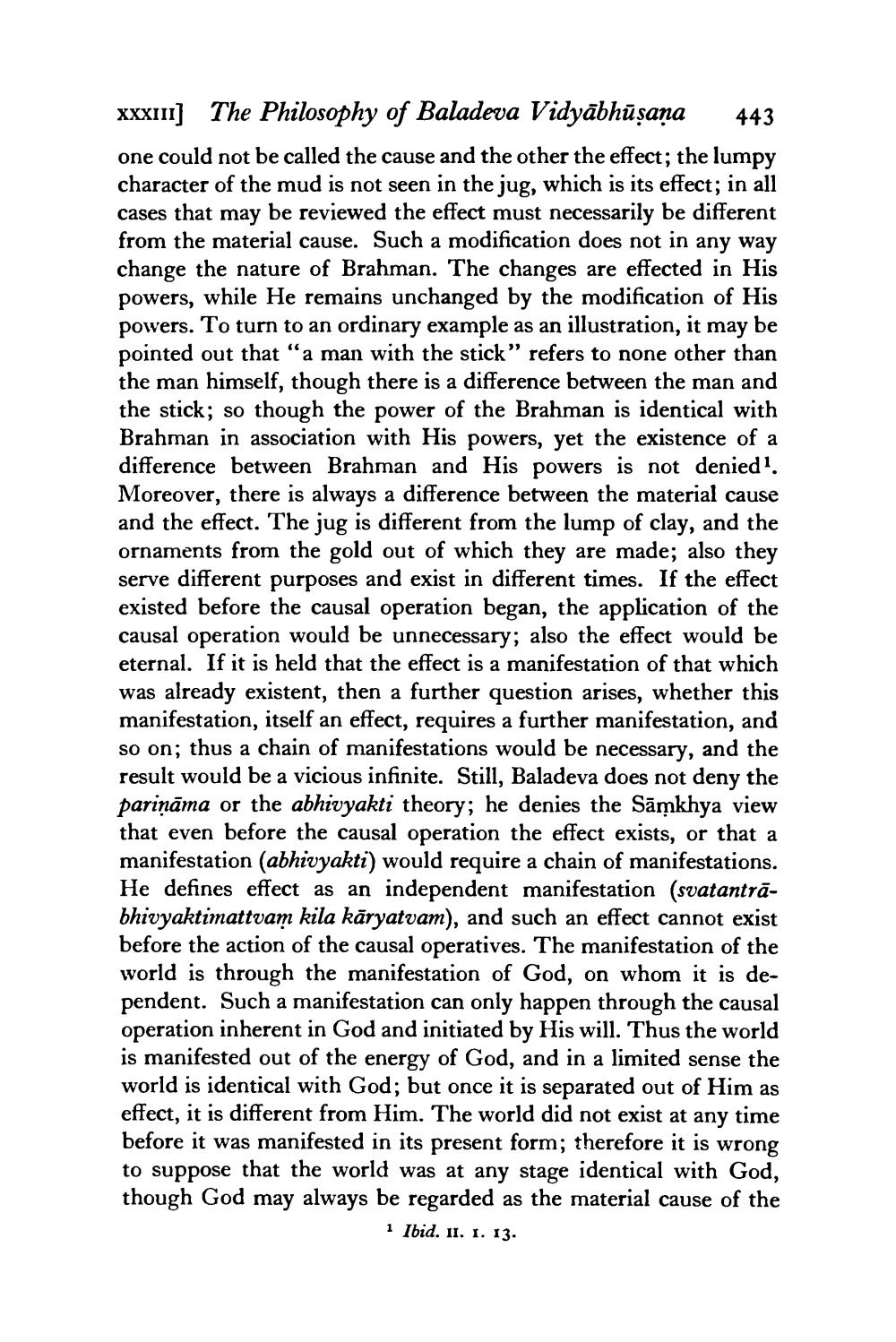________________
XXXIII]
The Philosophy of Baladeva Vidyabhūṣaṇa
443
one could not be called the cause and the other the effect; the lumpy character of the mud is not seen in the jug, which is its effect; in all cases that may be reviewed the effect must necessarily be different from the material cause. Such a modification does not in any way change the nature of Brahman. The changes are effected in His powers, while He remains unchanged by the modification of His powers. To turn to an ordinary example as an illustration, it may be pointed out that "a man with the stick" refers to none other than the man himself, though there is a difference between the man and the stick; so though the power of the Brahman is identical with Brahman in association with His powers, yet the existence of a difference between Brahman and His powers is not denied1. Moreover, there is always a difference between the material cause and the effect. The jug is different from the lump of clay, and the ornaments from the gold out of which they are made; also they serve different purposes and exist in different times. If the effect existed before the causal operation began, the application of the causal operation would be unnecessary; also the effect would be eternal. If it is held that the effect is a manifestation of that which was already existent, then a further question arises, whether this manifestation, itself an effect, requires a further manifestation, and so on; thus a chain of manifestations would be necessary, and the result would be a vicious infinite. Still, Baladeva does not deny the pariņāma or the abhivyakti theory; he denies the Samkhya view that even before the causal operation the effect exists, or that a manifestation (abhivyakti) would require a chain of manifestations. He defines effect as an independent manifestation (svatantrābhivyaktimattvam kila kāryatvam), and such an effect cannot exist before the action of the causal operatives. The manifestation of the world is through the manifestation of God, on whom it is dependent. Such a manifestation can only happen through the causal operation inherent in God and initiated by His will. Thus the world is manifested out of the energy of God, and in a limited sense the world is identical with God; but once it is separated out of Him as effect, it is different from Him. The world did not exist at any time before it was manifested in its present form; therefore it is wrong to suppose that the world was at any stage identical with God, though God may always be regarded as the material cause of the
1 Ibid. II. I. 13.




